Roll-off dumpsters provide numerous eco-friendly advantages, making them an essential choice for responsible waste management. First and foremost, these dumpsters enable efficient volume-based disposal, reducing the frequency of trips to landfills and thus minimizing fuel consumption and carbon emissions during transportation. By centralizing waste in one container, sorting and recycling processes are streamlined, facilitating better segregation of recyclable materials from general waste. Additionally, roll-off dumpsters are constructed from durable materials, designed for repetitive use over time, reducing the demand for single-use disposal options and promoting sustainability through longevity.
The versatility of roll-off dumpsters makes them suitable for a variety of projects, encouraging proper waste management practices across different sectors such as residential renovations, construction, and public events. By ensuring that waste is kept off the ground and contained, they help prevent littering and environmental degradation in both urban and rural settings. This containment is critically important in preventing harmful substances from leaching into soil and groundwater supplies—a direct benefit of utilizing roll-off dumpsters over open or unsupervised waste piles.
For event planners and businesses concerned about eco-friendliness, choosing roll-off dumpsters can also mean access to waste audits and detailed reporting, helping clients become more aware of their waste output and encouraging them to implement greener initiatives. Moreover, when positioned strategically, these dumpsters encourage greater community engagement in recycling efforts, educating the public about the impact of proper waste disposal on their local environment. Overall, roll-off dumpster use is a sustainable strategy that supports waste reduction, resource conservation, and contributes to a cleaner, more eco-conscious world.
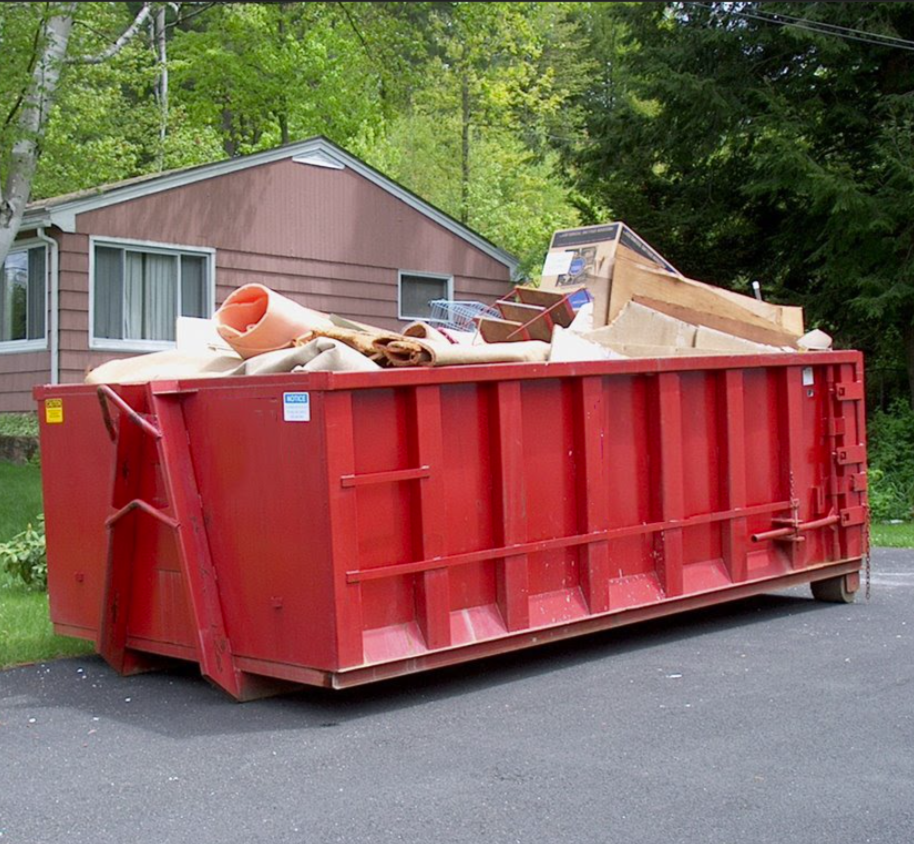
Roll Off Dumpster Rentals in Weston, Florida
Call today for a free quote (772) 280-9298
Roll Off Dumpster
Fast, Easy, & 100% Free To Get Started
Over 20 Years Experience
For over 20 years, we have forged lasting connections with the Weston community, dedicated to delivering quality. Our expertise guarantees satisfaction with every Roll Off Dumpster service we offer.
Trustworthy Quality Service
In Weston, our Roll Off Dumpster services highlight our unwavering dedication to quality. Customers trust us for reliable, pristine, and professional service.
Swift, Reliable Delivery
We swiftly deliver your Roll Off Dumpster, guaranteeing it reaches you quickly and dependably. In Weston, we prioritize efficiency while maintaining exceptional service quality.
Reliable Roll Off Dumpster Solutions in Weston, Florida
Call for a Free Quote Today
(772) 280-9298
Nestled in the heart of Florida, our roll-off dumpster company stands as a pillar of dependability and reliability. As a locally owned business, we take pride in serving Weston and surrounding areas like Davie and Sunrise. Our dumpsters cater to a variety of events, whether it's a bustling construction site, a lively festival, or a serene wedding venue, providing a clean and efficient solution for waste management. Our team prioritizes professionalism, ensuring you have a seamless experience from start to finish, reflecting our commitment to quality service. Partner with us today and see why we're the trusted choice within the community.
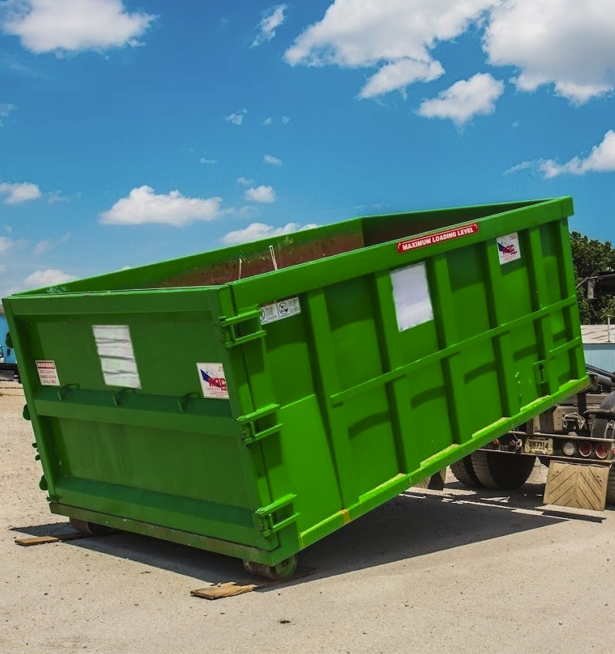

20 Yard Roll-Off Dumpster
Fits approximately 70 normally-filled 30-gallon trash bags.
Ideal for:
• Large home cleanouts or decluttering projects
• Roof replacements for medium-sized homes
• Renovations of multiple rooms (e.g., kitchen and bathroom)
• Medium-sized landscaping or yard renovation projects
• Demolition of a small to medium-sized structure (e.g., shed, small house)
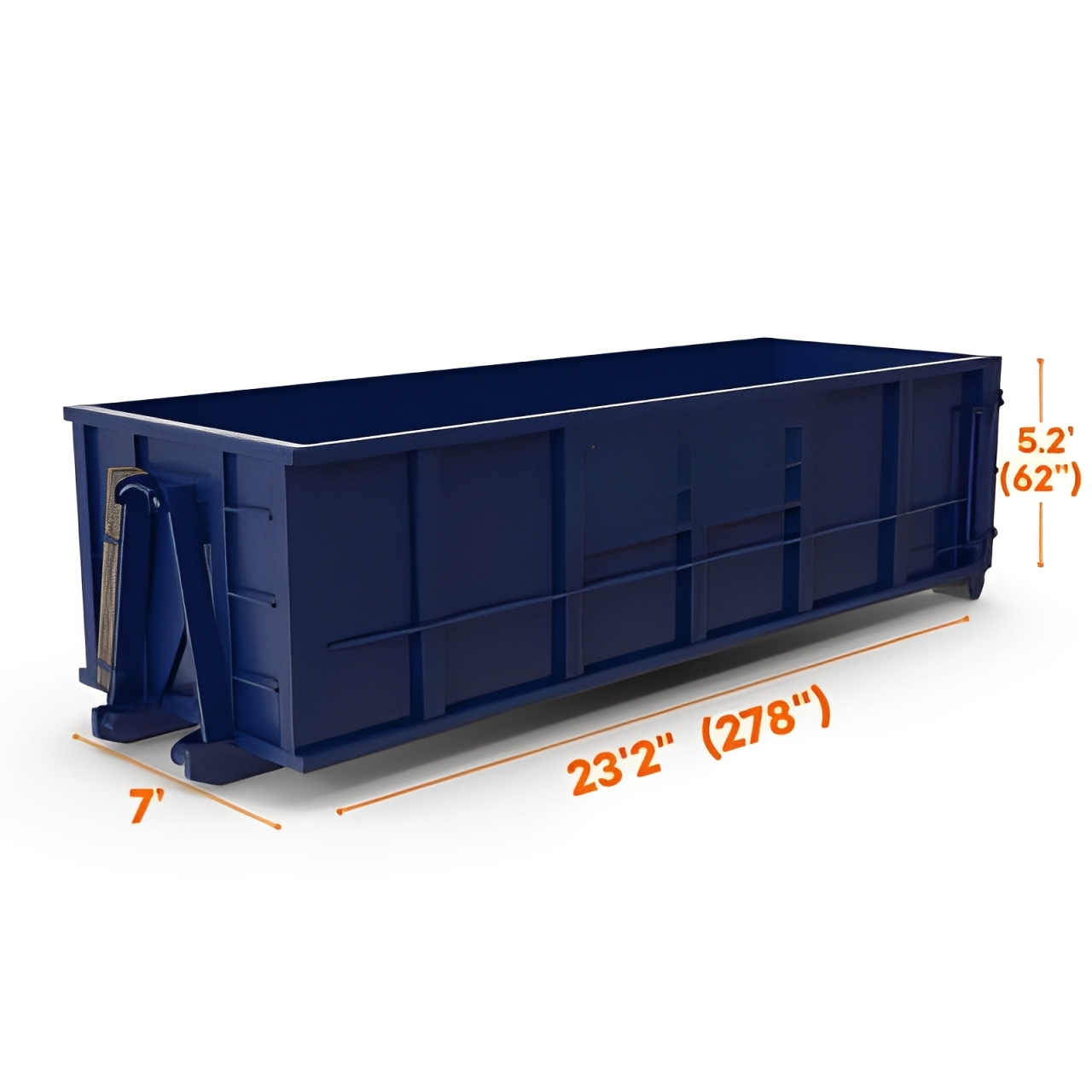
30 Yard Roll-Off Dumpster
Fits approximately 110 normally-filled 30-gallon trash bags.
Ideal for:
• Whole-home cleanouts or major downsizing projects
• Large-scale renovation projects (e.g., entire house remodel)
• Commercial construction projects (e.g., small retail or office building)
• Large landscaping projects for commercial properties
• Demolition of medium-sized structures or multi-story buildings
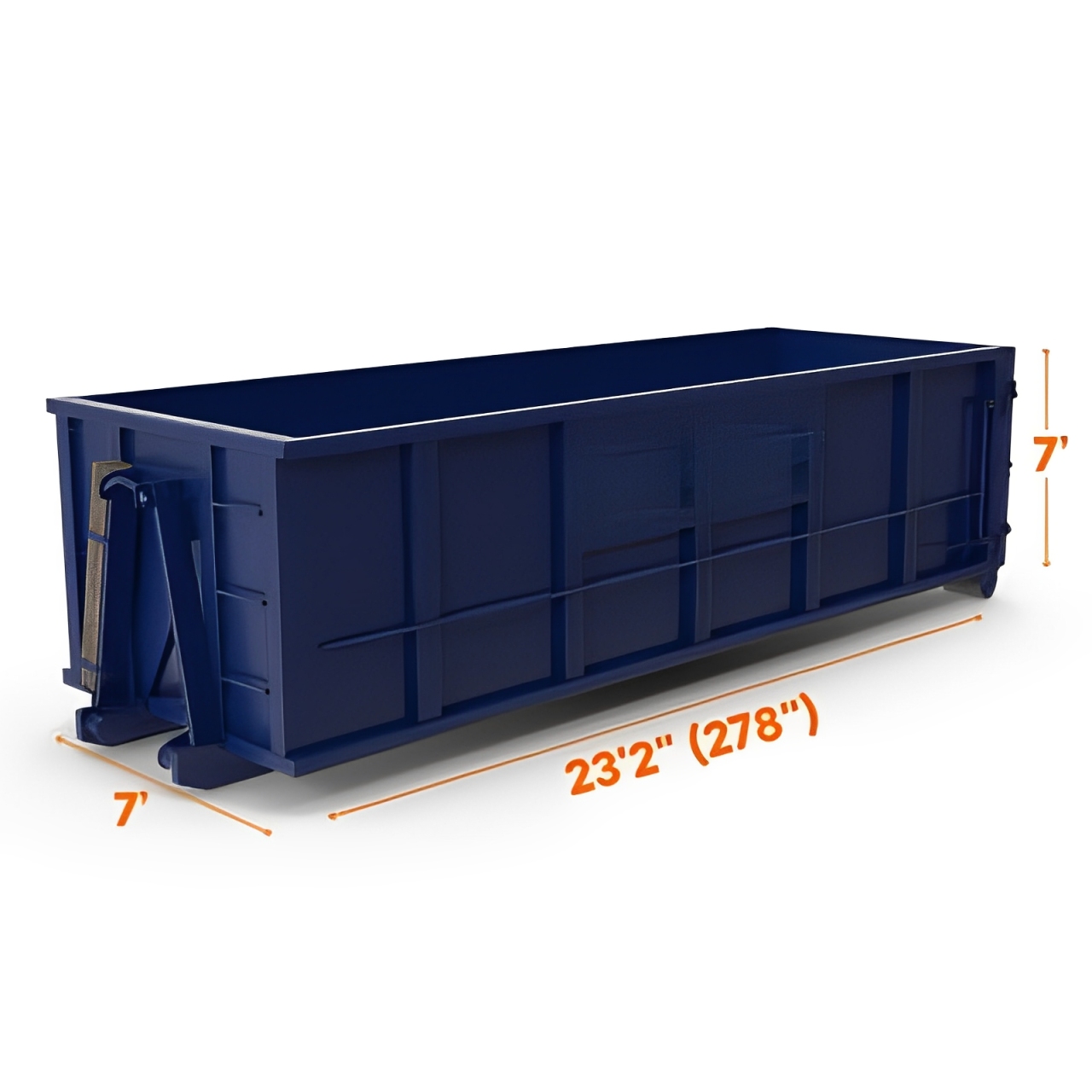
40 Yard Roll-Off Dumpster
Fits approximately 150 normally-filled 30-gallon trash bags.
Ideal for:
• Major home renovation or remodeling projects
• Large-scale commercial cleanouts
• Extensive landscaping or yard renovation projects
• Large construction projects (e.g., new home construction)
• Demolition of large structures or significant portions of a building
We Proudly Serve
Standard Portable Toilets
Offering clean and reliable standard portable toilets across Florida for Freedom Waste.
High Rise Portable Toilets
Providing high-rise portable toilets with easy access for urban projects in Weston, Florida.
Restroom Trailers
Quality restroom trailers for events in Weston by Freedom Waste.
Roll off Dumpsters
Freedom Waste offers versatile roll-off dumpsters for efficient waste management in Weston.
Septic Tank Cleaning
Expert septic tank cleaning services by Freedom Waste, Florida, ensuring optimal sanitation.
Grease Trap Cleaning
Professional grease trap cleaning services in Weston provided by Freedom Waste.
Fencing & Barricades
Secure fencing and barricades services throughout Florida by Freedom Waste.
Residential Storage
Reliable residential storage solutions available in Weston, Florida.
Weston Sanitation and Dumpster Solutions
Obtaining a quote and arranging delivery for a roll-off dumpster rental in Weston has never been easier. Our streamlined online process allows you to simply fill in a few personal details, such as your name and contact information, to receive a quote instantly. With multiple 'Get A Quote' buttons strategically placed across our site, you can initiate the process with just a click. We also understand the need for urgency, which is why our customer service team is ready to assist seven days a week, ensuring we arrange your dumpster delivery at a time that suits you. Our logistics network covers Weston extensively, guaranteeing prompt and efficient placement of your dumpster, no matter the site location. This ease of service covers everything from residential cleanups to large-scale construction projects, offering customizable sizes to meet your specific needs. Trust us to handle the waste while you focus on what matters most. We take pride in offering transparent pricing and no hidden fees, ensuring that when you rent from us, you're choosing a company committed to honesty and reliability.
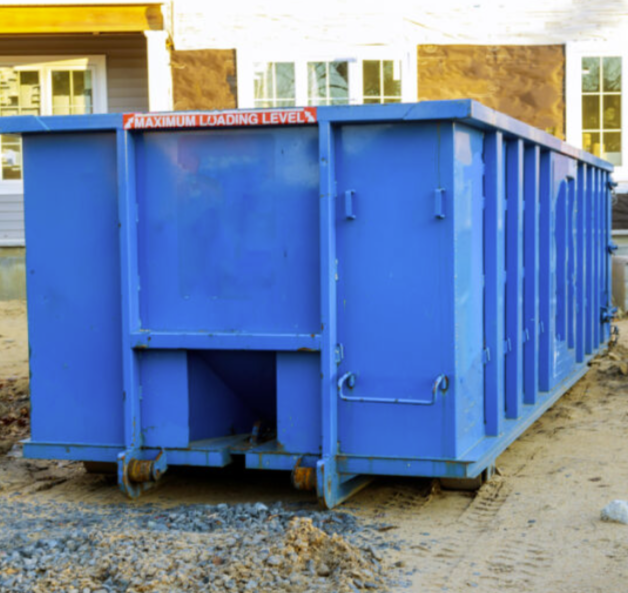
Weston is a community blessed with charm and natural beauty, making it a vibrant place to live and visit. Whether hosting a gathering in one of its lush parks or organizing an event by the picturesque lakes, waste management solutions like roll-off dumpsters are indispensable. Our exceptional service ensures that the beauty of Weston remains unsullied, offering reliable solutions that fit seamlessly into the local landscape. Our roll-off dumpsters are ideal for various occasions, including community clean-up events, nature-inspired weddings, and outdoor festivals. The reliability and convenience of our services make us a top choice for residents and event planners alike who want to maintain Weston's scenic allure, particularly around popular spots like the Weston Town Center or during the annual Weston Art Festival. Additionally, our commitment to cleanliness and efficiency aligns with the town's values, making our dumpsters a trusted resource for sustainable waste management. Our team strives to enhance every guest's experience, knowing the importance of maintaining a pristine environment for all to enjoy. Our roll-off dumpsters play a vital role in preserving the charm of Weston, ensuring every event runs smoothly with minimal environmental impact.
Why choose us? We are Weston's leading Roll Off Dumpster service provider due to our commitment to excellence and our deep understanding of local needs. We prioritize customer satisfaction by tailoring our services to the unique requirements of the Weston community. Our experience grants us unique insights into the area's waste management dynamics.
Having served the region for years, we've built strong relationships that enable us to provide solutions perfectly matched to local expectations. Our services cater to a wide array of needs, from residential to commercial projects, ensuring we meet each client's specific goals. Proudly part of the Weston community, we deliver reliability and customized service that makes us stand out.
Fast and reliable are the hallmarks of our roll-off dumpster services. We understand the importance of timely waste management and are committed to delivering services that align with Weston's fast-paced requirements. Our fleet is always prepared, ensuring quick deployment to any site.
Our reliability stems from a meticulous process, ensuring all equipment is maintained to the highest standards and delivered promptly. Whether for a construction site or residential cleanout, our efficient service makes us a reliable partner in waste management, offering you peace of mind. Choose our dependable service for seamless waste management, tailored precisely to Weston's demands.
Learn More About Our Roll Off Dumpster in Weston
Renting a roll-off dumpster in Weston is straightforward, allowing you to manage waste effectively and efficiently. Begin by visiting our website, where you'll find all the necessary tools to initiate your rental. At both the top and bottom of our pages, we feature straightforward forms designed to gather essential information such as your first name, last name, phone number, and email. By completing these forms, you'll be able to receive a quote tailored to your specific needs and requirements. In addition to these forms, you'll find strategically placed 'Get A Quote' buttons throughout our site, providing easy access to our pricing and availability information with just a click.
Our website ensures that you have a comprehensive understanding of the options available, including various dumpster sizes tailored to meet the demands of your project. From small residential cleanups to large-scale commercial construction, we have solutions that fit all. Once you've submitted your details, our customer service team will promptly reach out to finalize the details, ensuring a seamless start to your rental period. Whether you're a homeowner, a contractor, or an event planner, our goal is to provide you with a hassle-free experience.
Understanding the urgency that sometimes accompanies disposal needs, our flexible scheduling options cater to both planned waste management and more spontaneous requirements. For consistent reliability, choose us for your roll-off dumpster rentals in Weston, and experience the ease of arranging efficient waste solutions.
The delivery timeframe for roll-off dumpster orders aims to balance efficiency with customer convenience. Typically, once you finalize your order, our team coordinates to dispatch the appropriate size dumpster to your location as soon as the next business day. During peak times or for specific requests, this timeframe might extend slightly, but we strive to accommodate your schedule to the best of our ability. Customers often plan their projects around our reliable delivery timelines, ensuring their endeavors commence smoothly.
Understanding that construction and cleanup projects can have varying timelines and urgencies, we allow you to select a preferred delivery date during the order process. Our logistical network and dedicated dispatch team focus on prompt delivery, ensuring that whether in Weston or the surrounding areas, your roll-off dumpster arrives when you need it. Offering multiple scheduling options enhances the flexibility we provide as part of our superior customer service.
For anyone needing expedited services, we recommend contacting our team directly. By communicating specific needs, we can often arrange faster turnaround times or prioritize delivery based on project criticality. Rest assured, when you choose our service, you're selecting a provider committed to reliability and timely delivery, aligning with your project timelines and expectations.
Yes, we proudly service all types of events and construction services, reflecting our commitment to versatility and comprehensive coverage. Our offerings are tailored for a wide array of scenarios, from large-scale festivals that require extensive waste solutions to intimate gatherings like weddings, ensuring that every event is professionally managed with the highest standards. We provide luxury restroom trailers and porta potties that enhance guest comfort and convenience, meeting both practical and aesthetic needs. Whether it's a corporate event needing fencing and barricades for safety or a family reunion that requires additional restroom facilities, we've got you covered.
Our roll-off dumpsters are perfect for any project type, offering flexible solutions to manage waste efficiently and responsibly. From construction sites needing large containers for debris and waste to public events where waste management needs to be both unobtrusive and effective, we're equipped to handle it all. The breadth of our offerings, which includes holding tanks, ADA units, portable sinks, and hand sanitizer stations, ensures that there is no need we are unable to meet.
Our adaptability extends beyond products to service, as our team is experienced in accommodating the unique requirements of special events. Whether you require quick setup, custom configurations, or targeted solutions for specific issues, our expertise ensures professional and adaptable service delivery. Trust us for all your event and construction needs, where quality and reliability are guaranteed.

